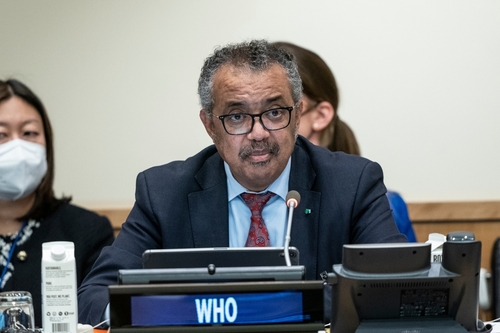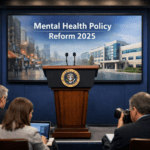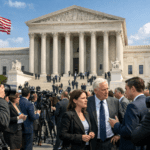Tedros Adhanom Ghebreyesus calls on President Trump to reconsider America’s withdrawal from the UN’s health body.
U.S. Withdrawal Threatens Global Health Coordination
A financial and diplomatic shock is looming over the World Health Organization, as the United States, its single largest donor, braces for an official withdrawal in January. President Donald Trump’s decision to cut funding and quit the UN health agency threatens to fracture the international system for coordinating responses to global disease outbreaks just a few years after the COVID-19 pandemic exposed the dangers of acting alone.
Tedros Appeals to Washington, Launches Reforms
To WHO Director-General Tedros Adhanom Ghebreyesus, the decision presents both a crisis and a test of leadership. In an interview with POLITICO, the Ethiopian-born former health minister said he has been working behind the scenes to appeal to Trump and senior U.S. officials to reconsider the move. At the same time, he is reorganizing the WHO’s leadership, launching an aggressive fundraising campaign and overseeing the largest downsizing in the organization’s 75-year history.
Huge Funding Gap Forces Layoffs
The numbers show the size of the challenge. The United States accounted for roughly $640 million in 2023, the most recent year for which data is available, funds that supported programs on vaccine distribution, epidemic surveillance and emergency response. The loss of that money has already forced the WHO to cut around 600 positions out of roughly 10,000 employees. Tedros acknowledged these cuts have been painful. “The sudden aid cuts this year have cost lives,” he said. “When resources shrink, the most vulnerable suffer first.”
Addressing Trump’s Complaints
The Trump administration has repeatedly accused the WHO of “inappropriate political influence” and “unfair financial burdens” on its member states. Tedros told POLITICO he has taken those criticisms seriously and implemented reforms to increase transparency, streamline decision-making and strengthen oversight of how funds are used. His goal, he said, is to demonstrate that the organization isn’t beholden to any one power-but that it depends on collective global action to prevent future health crises.
Turning Crisis into Opportunity
Despite the financial hit, Tedros insists that the moment could also drive positive change. Countries that for a long time have relied heavily on U.S. assistance, he said, are now investing more in their own health infrastructure and emergency preparedness. “If donors or others see that what they give is not charity but security for everybody, we’ll be in a better situation,” he said. “At the same time, self-reliance is important. Each and every country should invest in health. If countries take ownership, I see a better future.”
A Test of Global Solidarity As the first African to serve as its chief, Tedros has led the WHO through crisis after crisis-from COVID-19 to outbreaks of mpox-while leading negotiations for an international agreement to strengthen the world’s response to future pandemics. The current standoff with Washington is yet another test of global solidarity, in his eyes. “Solidarity is important,” he said. “Unless we support each other, viruses will always find the gaps.” So far, Tedros has remained optimistic in public that the U.S. will ultimately stay engaged even if at a reduced level. But with the withdrawal date looming, he is also preparing the organization and the world for the possibility that it won’t.





















